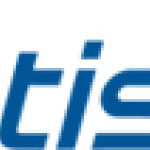- Industry: Telecommunications
- Number of terms: 29235
- Number of blossaries: 0
- Company Profile:
ATIS is the leading technical planning and standards development organization committed to the rapid development of global, market-driven standards for the information, entertainment and communications industry.
1. Capabilities, intentions, and attack methods of adversaries to exploit, or any circumstance or event with the potential to cause harm to, information or an information system. 2. Any circumstance or event with the potential to harm an information system (IS) through unauthorized access, destruction, disclosure, modification of data, and/or denial of service. 3. The likelihood of an attack being mounted against a computer system. See also: Risk, Vulnerability. 4. A potential violation of security. 5. An action or event that might prejudice security.
Industry:Telecommunications
1. Between local access and transport areas (LATAs. ) 2. Services, revenues, and functions associated with telecommunications that originate in one LATA and that terminate in another one or that terminate outside of that LATA.
Industry:Telecommunications
1. Attributes, associated with a security object, that when matched against the privilege attributes of a security subject, are used to grant or deny access to the security object. 2. Attributes associated with an object that, when matched against security attributes of a subject, are used to grant or deny access to that object.
Industry:Telecommunications
1. Assessment of an information technology (IT) product or system against defined security-related functional and assurance criteria, performed by a combination of testing and analytic techniques. 2. The detailed examination of a system or a product to search for vulnerabilities and to determine the extent to which the required or claimed security functions are upheld by its implementation. Note: Security functions are normally described in a System Electronic Information Security Policy, which forms the basis of the evaluation baseline. The examination may cover aspects of the development and operational environment. See also: Certification, Information Technology Security Evaluation and Certification Scheme 3. The assessment of an ITSEC system or product against defined evaluation criteria.
Industry:Telecommunications
1. Application-independent software that supports the running of application software. 2. Application-independent software that supports the running of application software and manages the resources of the application platform.
Industry:Telecommunications
1. Any transmission, emission, or reception of signs, signals, writing, images and sounds or intelligence of any nature by wire, radio, optical or other electromagnetic systems. 2. Any transmission, emission, or reception of signs, signals, writings, images, sounds, or information of any nature by wire, radio, visual, or other electromagnetic systems.
Industry:Telecommunications
1. Any threat of a deliberate unauthorized change to the state of a data processing system. Note: For example, an active threat that would result in modification of messages, insertion of spurious messages, masquerade, or denial of service. 2. The threat of a deliberate unauthorized change to the state of the system. Note: Examples of security-relevant active threats may be: modification of messages, replay of messages, insertion of spurious messages, masquerading as an authorized entity and denial of service.
Industry:Telecommunications
1. Any organized assembly of resources and procedures united and regulated by interaction or interdependence to accomplish a set of specific functions. 2. A combination of two or more interrelated equipment (sets) arranged in a functional package to perform an operational function or to satisfy a requirement. 3. A collection of personnel, equipment, and methods organized to accomplish a set of specific functions. 4. See: Electronic Information Processing System (EIP System. ) 5. A specific ITSEC installation, with a particular purpose and operational environment.
Industry:Telecommunications
1. An organization that provides services for content providers and for users of a computer network. Note: The services may include access to the computer network, content hosting, server of a private message handling system, news server, etc. 2. A company, organization, administration, business, etc. , that sells, administers, maintains, charges for, etc. , the service. The service provider may or may not be the provider of the network. 3. Relative to numbering guidelines and FCC regulations, service provider refers to a telecommunications carrier or other entity that receives numbering resources from the NANPA, a Pooling Administrator or a telecommunications carrier for the purpose of providing or establishing telecommunications service (FCC 00-104, §52. 5 (i). ) ***PROPOSED ADDITION***1. An organization that provides services for content providers and for users of a communications network. Note: The services may include access to the communications network, content hosting, server of a private message handling system, news server, etc. 2. A company, organization, administration, business, etc. , that sells, administers, maintains, charges for, etc. , the service. The service provider may or may not be the provider of the network. 3. Relative to numbering guidelines and FCC regulations, service provider refers to a telecommunications carrier or other entity that receives numbering resources from the NANPA, a Pooling Administrator or a telecommunications carrier for the purpose of providing or establishing telecommunications service (FCC 00-104, §52. 5 (i). )This definition is being proposed for addition/change in the ATIS Telecom Glossary by the PRQC. If you have any objections to this acronym being added to the Telecom Glossary, please contact Paul Savitz, PRQC Committee Administrator, via email at psavitz@atis. Org to note your objection. ***
Industry:Telecommunications
1. An object supporting both read and write accesses to an information system (IS. ) 2. An object that supports both read and write accesses. 3. An object that supports both read and write accesses.
Industry:Telecommunications
